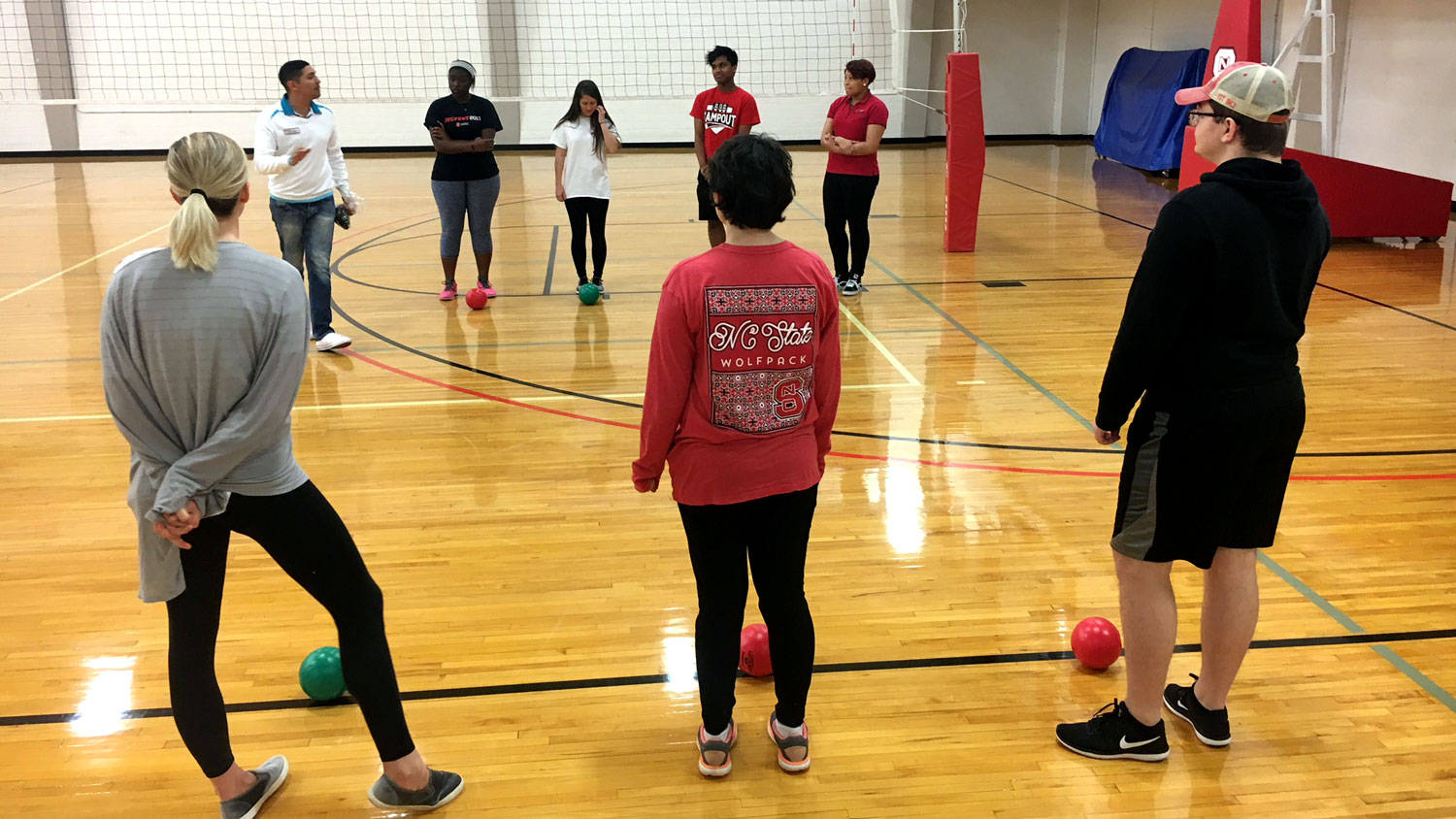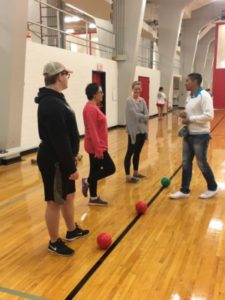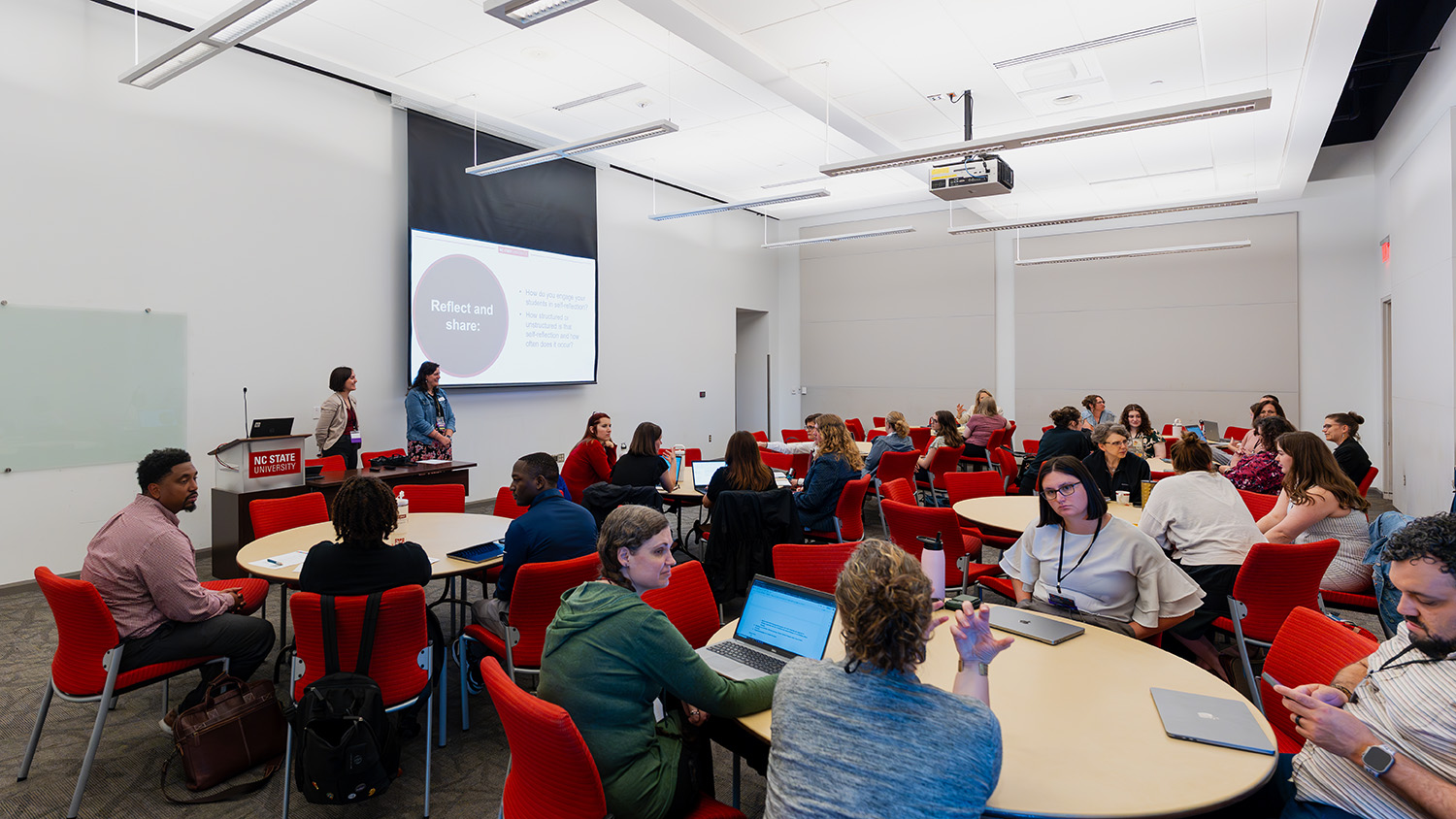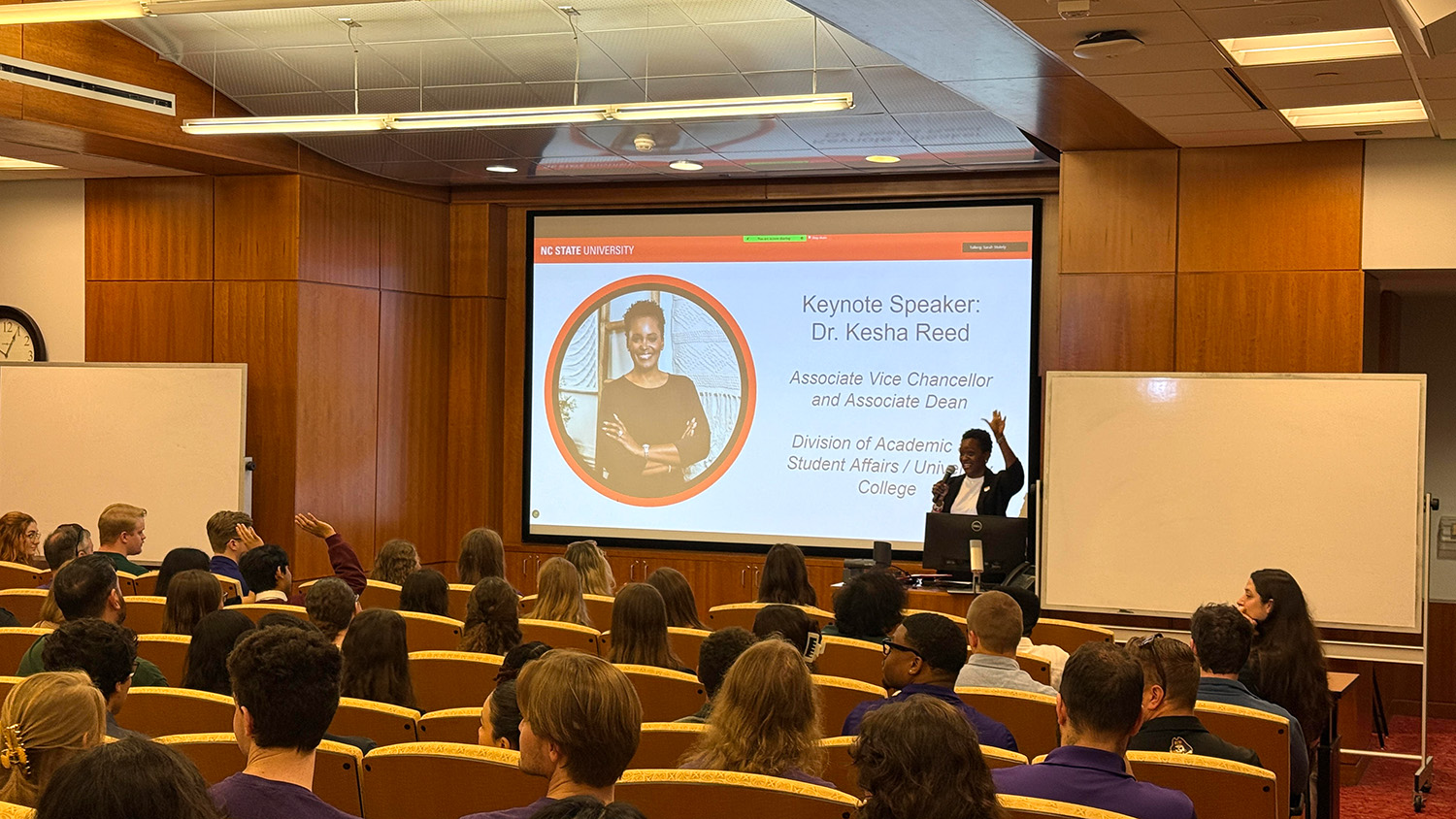A Community Effort

Teaching principles of diversity and inclusion can take many forms. Add physical activity and an interactive environment and you have a new way to teach the importance of these principles.
[lead]That is how diversity dodgeball was born.[/lead]
Nelson Santiago, coordinator of Sports Programs, was approached by a program assistant. ‘How can we teach diversity and inclusion as part of training?’ With a history in multicultural student affairs, Santiago implemented similar adaptable games in the past, such as seated volleyball and wheelchair basketball. With this in mind, he developed “diversity dodgeball” as a way to show how various factors can have an impact not only underrepresented groups, but society as a whole.
Diversity dodgeball is broken into three parts: privilege, equality and equity. The game begins with the concept of privilege. Each participant loses an aspect of their physical ability, such as loss of eyesight or throwing with a non-dominant hand. The next phase continues with equality. One team has full physical ability and other team has limited physical ability until one or two team members remain. Finally, the game concludes with the idea of equity. Similar to the equality portion, one team starts with a physical ability taken away, until two players are “out.” Once this occurs, the game resets and both teams resume with full physical ability.

Photo courtesy of Heather Lawson.
The purpose is to show players concrete examples of each topic and each game ends with a discussion and reflection on the experience of having an aspect removed from specific individuals.
“The game helps participants understand why it is important to have a diverse [environment] and having resources for underrepresented populations,” said Santiago.
Since August 2017, approximately 130 NC State students have participated in diversity dodgeball.
The first version of the game was introduced to Wellness and Recreation program assistants, student leaders in the department, during their Fall 2017 semester training. With the goal of providing an interactive and safe space to educate not only themselves on the importance of inclusion in the workplace, but also their student staff and peers, the activity sparked conversations and empowered the students to consider different viewpoints and perspectives, with some students sharing their own experiences with race, gender and
socio-economic status.
Heather Lawson, outreach and student engagement coordinator for Student Health Services used the training to encourage students in the Pack Peers program–students who are interested in public health-related or clinical level health-related careers, to receive training of diversity and equity.
The game was a chance for students to not only actively learn, but bring awareness to the how important the training is for health care providers.
[pullquote cite=”Heather Lawson” color=”wolfpackred”]Students were able to recognize what equity, equality and privilege were and how it could affect them in practice.[/pullquote]
“The Pack Peers are now able to recognize where equity, equality and privilege exist in our society. They have become advocates for cultural competence in health care and well-being on campus.”
For the future, Nelson hopes to expand the program to share the experience.
“We are looking to train others that can lead the game. Also, we are looking to collaborate with the Office for Institution Equity and Diversity to offer the experience to others on campus,” he said.


